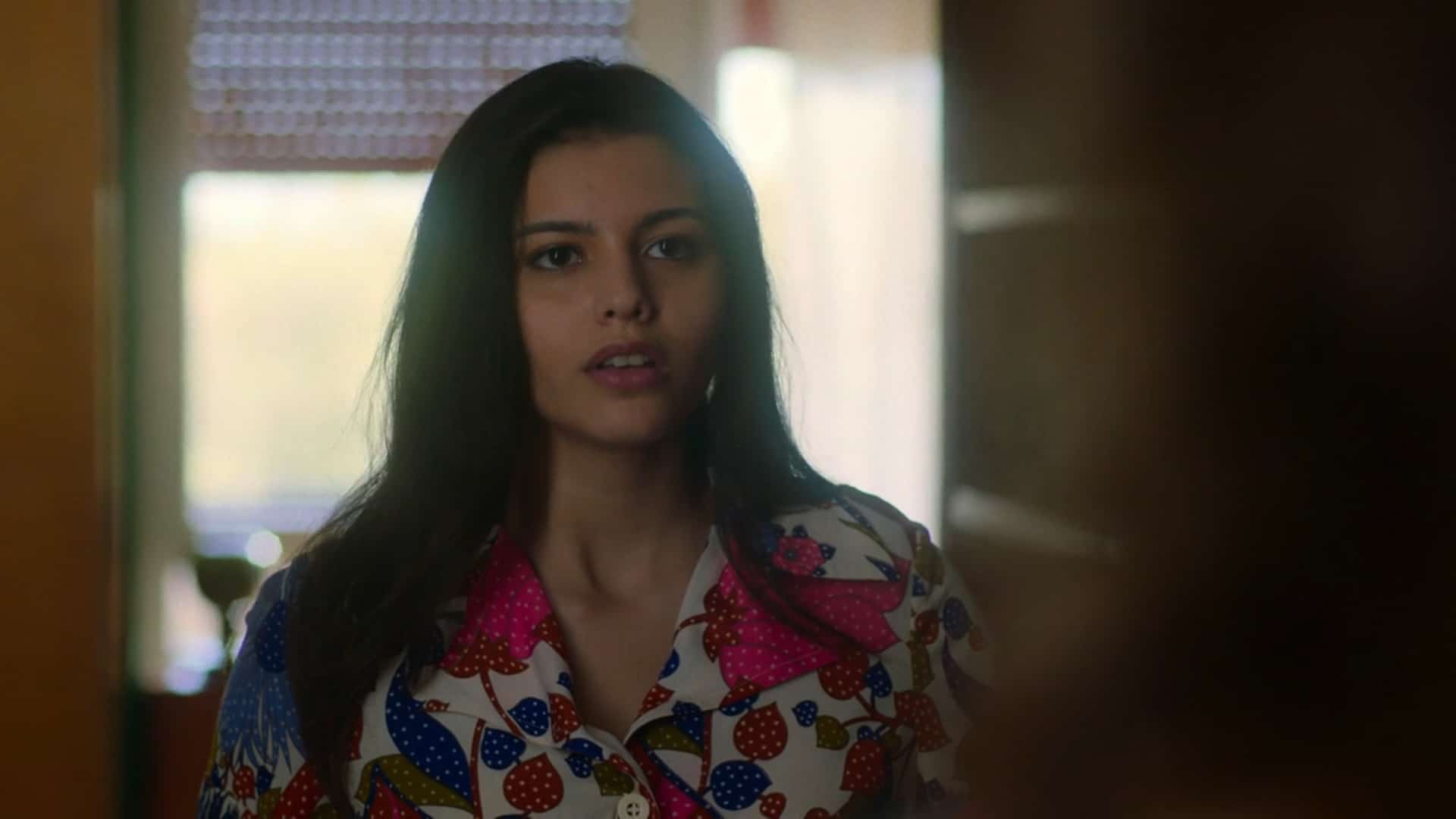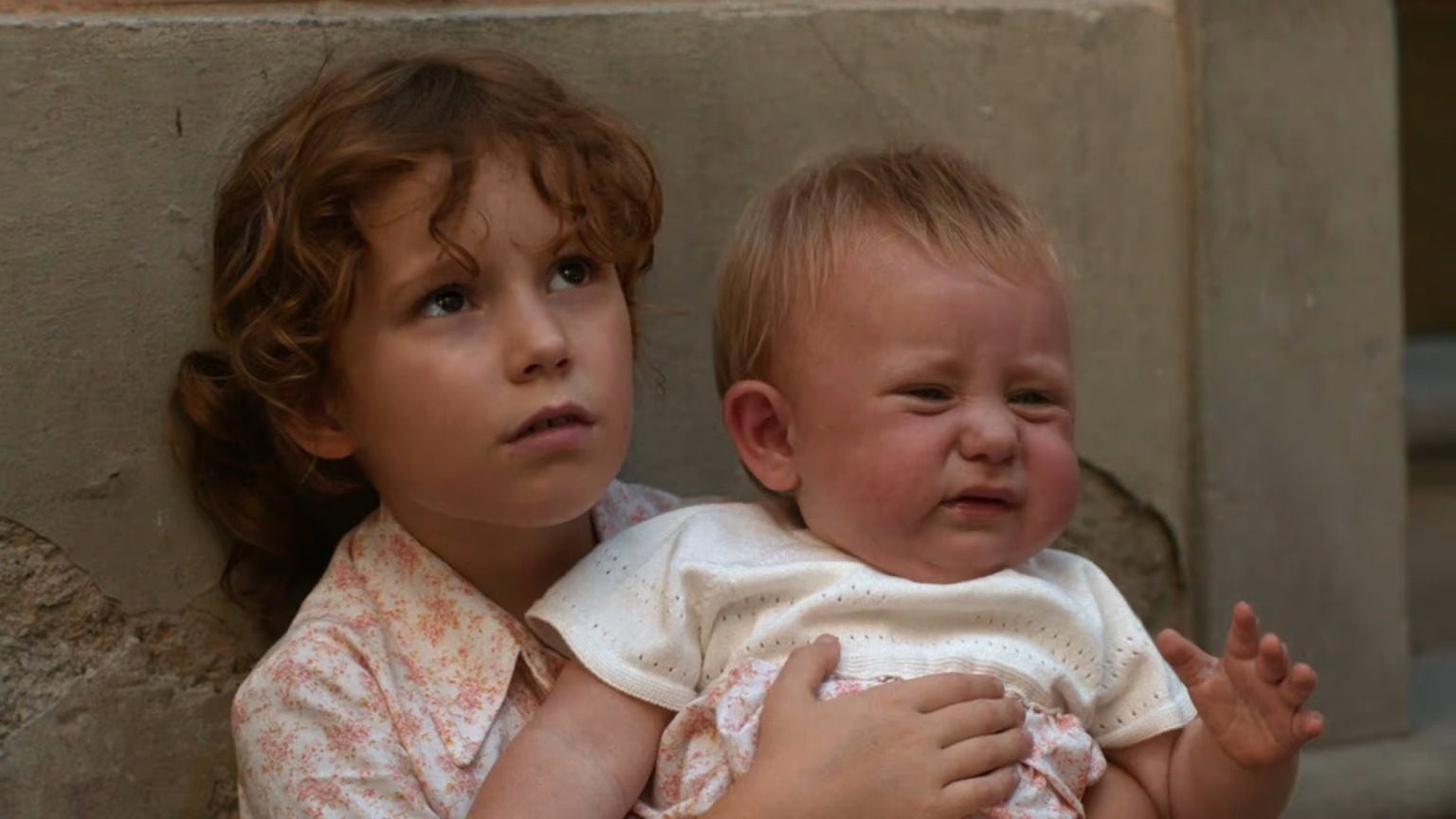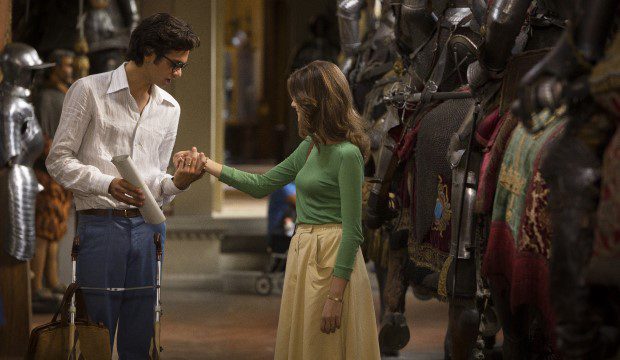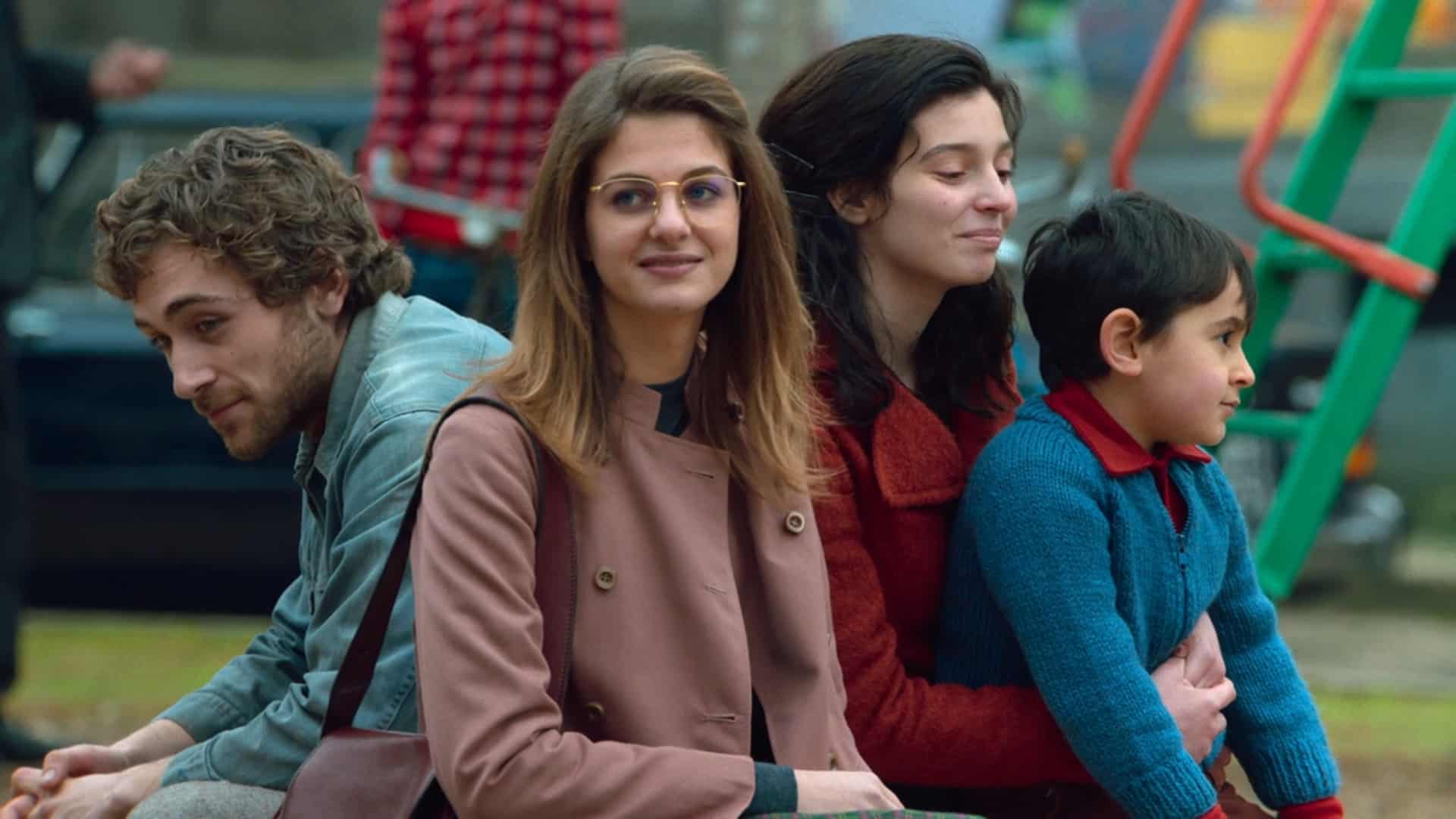In our My Brilliant Friend Season 3 Episode 6 Review, we’d like to focus on two important points. In its third season, the show tackles what is arguably the most unique and challenging novel in Elena Ferrante’s quadrilogy. The story of those who leave and those who stay appears to forcefully block the story of the two main characters, progressing in little steps but focusing more significantly on the narrator’s (Elena) inner conflict and involving her in the country’s past events.
Directer Daniele Luchetti’s series must work within these parameters, attempting not to compromise the work’s continuity while highlighting a path that involves the characters across time and one of their understanding. This episode succeeds in condensing and adapting Ferrante’s complicated work into a product acceptable for a large audience in the best moments. However, some elements persist due to decisions made upstream that are becoming increasingly problematic.
My Brilliant Friend Season 3 Episode 6 Review
My Brilliant Friend Season 3 Episode 6 begins in a quiet room. Then there’s an explosion that destroys a shop and throws the viewers right into the protest years. And it’s with a kick that The Brilliant Friend leaps forward in time, revealing its two leads to be very different from how we left them in the previous episode. Elena is the mother of two daughters, still married to Pietro, and takes part in feminist protests. She has quit writing books, and her life appears to have achieved a delicate balance. With the entry of Pasquale and Nadia, as well as Lila’s son, Gennaro, Ellena/Lenù’s lifestyle will once again be tied to that of the neighborhood, providing her with a mirror in which to examine.

To highlight a sequence, after saying goodbye to Pasquale and Nadia, who have used the house’s restroom in the meantime, we observe Lenù carefully clean the bathtub, toilet, and shower. It’s her desperate attempt to cleanse her old life, equipped with gloves and alcohol. The episode’s title appears to refer to a number of things, including Italy’s historical and social setting, as well as Lenù’s ongoing inability to totally detach herself from her homeland. Above all, the heroine’s horror is the fear of not having yet succeeded to build a personal identity that is not defined and determined by how others see her.
Family Lunch And What It Represent
My Brilliant Friend Season 3 Episode 6 (“Becoming”) conveys a way too predictable solution to Lenù’s spiritual and identity crisis. “Becoming” means growing, and in order to do so, Lenù will have to cope with her womb once more, with the umbilical cord that binds her to his childhood hospital. Returning to the ward and discovering the changes that have occurred within his own family, Lenù will have to confront the ghosts of himself in the past once more.
A family lunch that will bring together all of the series’ important characters will serve as a springboard for a sequence of thoughts and inner reflections that will end in Elena’s acceptance of her duty as an adult woman. The revelation of Lenù is reached with a picture that instantly transforms a lunch, although unexpected and remote, but pleasant, that of a steak on a plate that leaks the juices. The heroine, played by Margherita Mazzucco, is ready to face a turning point in her life, and the juices of the flesh turn into menstrual blood.

Changing The Direction For My Brilliant Friend Season 3
My Brilliant Friend Season 3 appears to have adopted a new course, similar to what happens to its heroine, that affects the tone of the staging and narration, although only slightly. Daniele Luchetti’s direction has somewhat modified the adaptation developed by Saverio Costanzo in the last two seasons from a more emotional and impactful aspect to favor a more linear and obvious tale in its exposure. My Brilliant Friend conducts a particularly effective adaptation work to what the director wishes to express through the television, simplifying some dynamics embedded in Elena Ferrante’s novel. However, its simplicity appears to highlight some of the project’s most problematic characteristics.
In the My Brilliant Friend Season 3 Episode 6, it is revealed that Lenù’s popular novel has been translated into German, resulting in excitement, surprise, and a little dose of boredom because “Elena Greco seems to be the only thing you understand” about the novel. The third season of My Brilliant Friend appears to have been translated with attention to the source material rather than being adapted for seriality. As a result, it features a slight betrayal of the novel’s depth and characters, as well as the tone and mood of the two earlier seasons. Of course, Daniele Luchetti’s directing technique differs from those who came before him, but it lacks that powerful feeling capable of immersing the audience in 360 degrees and leaving them thrilled by what they sees.
Suspend Disbelief
The reasons can be found in an act that should never be overlooked while approaching a story: suspension of disbelief. We might easily overlook the regular elements that felt out of place from the very first episode of this third season. This season is certain to have wished to keep two very young actors to provide body, voice, and personality to two women who, for one purpose or another, must face many life situations, including those that are painful. Gaia Girace and Margherita Mazzucco continue to impress with their acting abilities, but this episode falls short of deceiving the audience.

On several occasions, it’s difficult to believe those voices, faces, and bodies are capable of bearing the tremendous weight of the events and story. A few grey hairs and well-chosen clothing aren’t enough to give the impression that you’re seeing women in their late thirties rather than their early eighties. However, it would be a mistake not to explore the source of this experience when writing. This episode appears to want to say too much in comparison to what they are actually necessary to do, leaving some actions and events, which appear to be of great importance at first appearance, to stay unclear, if not forgotten.
The wedding between Lenù and Pietro lacks the intensity that the characters seem to desire to create; one gesture especially loses its significance; and several of the characters’ relationship dynamics appear to be in a sometimes conflicting swing. Even the dialogues show signs of utter confusion as if the characters are attempting to break free from the screenplay prison they should be trapped in. Fortunately, the tale is universal and pleasantly engaging, as well as deep, to the point where you can’t take your gaze away from the screen without losing interest.
The Bubble That Lila And Elena Try To Live In
Lila and Elena both aim to live near the neighborhood’s services without being impacted by them. Lila enjoys the power, respect, and sometimes hate that comes with her position. She doesn’t want to fight anymore, though. Not even Michele, the women in the neighborhood, none of it. She only wants to feel like a huge fish in a small pond, and only that. Elena, on the other hand, she wants the luxury treatment. She wants to know what everyone else is doing, what happened, and why they are doing it without ever having to leave the house. She wants to find out what happened to Gino without having to speak with anyone unfriendly and deal with their problems.

Pasquale is an excellent example of this. It disturbed her to have him enter her home, which was spotless, and shatter her calm with the thought that he may kill her or any of her family, never mind Nadia and her problems back home. She could no longer decide when she wanted to be a part of the drama and when she wanted to leave. The drama had arrived at her door, and it appeared that Gennarino’s visit was the second time, which is why Elena was determined to learn the whole tale. She couldn’t do it with Pasquale, regardless of who she was in the past, but Lila? Her imposing her will on Elena’s make-believe world? It was ridiculous.
Yet, as Pietro hitting Elena demonstrates, none of Elena’s or Lila’s illusions will remain, even if they are guarded in their own home. While Enzo isn’t about to betray her as her brother did, you could tell he’s hoping Lila will accept Michele’s offer and make them pretty wealthy for the times. As a result, she’ll have another reason to escape, just as she did before when Michele tore through her walls and ripped apart the life she had created for herself.
Also Read: Unreal Engine 5 Release Date: The New Generation Is All Set For a Comeback!










